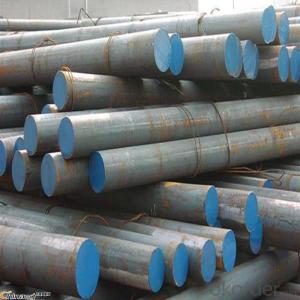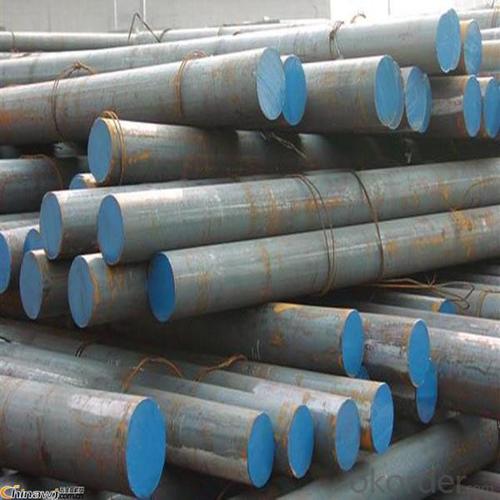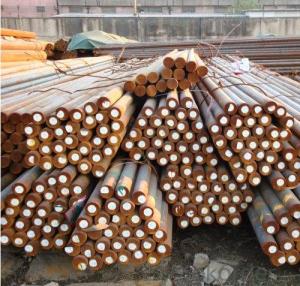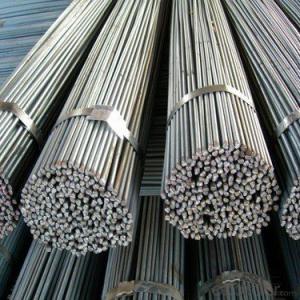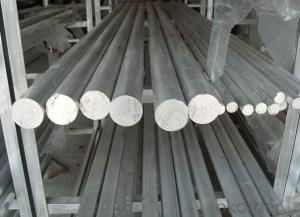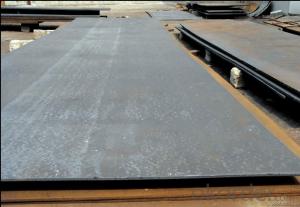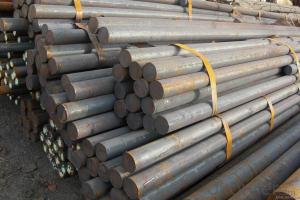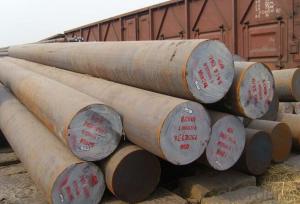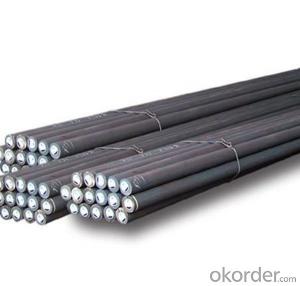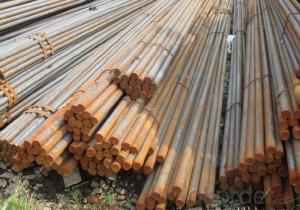3Cr2Mo Die Steel Special Steel Alloy Steel
- Loading Port:
- China main port
- Payment Terms:
- TT OR LC
- Min Order Qty:
- 25 m.t.
- Supply Capability:
- 10000 m.t./month
OKorder Service Pledge
OKorder Financial Service
You Might Also Like
Specification
Specifications
1.ISO9001:2008 certificate
2.Competive price and Best quality
3.On-time delivery
Chemical Composition(GB)%
C | Si | Mn | Cr | Mo | S | P |
0.34 | 0.5 | 0.8 | 1.7 | 0.42 | ≤0.030 | ≤0.030 |
Standard
GB | ASTM | DIN |
3Cr2Mo | P20 | 1.2311 |
Available Size
Rolled Plate:20-400mm×610mm×L
Heat Treatment
Item | Temperature℃ | Hardness |
Anneal | 710-740 | ≤220HB |
Quenching | 850-880 | 52-55HRC |
Tempering | 580-630 | 28-35HRC |
Characterstics
1.Good comprehensive mechanical properties
2.excellent polishing performance and weld reapiring propery
Applications: Suitable for large or medium sized and precise plastic moulds


1, Your advantages?
professional products inquiry, products knowledge train (for agents), smooth goods delivery, excellent customer solution proposale
2, Test & Certificate?
SGS test is available, customer inspection before shipping is welcome, third party inspection is no problem
3, Payment Terms?
30% TT as deposit and 70% before delivery.
Irrevocable L/C at sight.
4, Trading Terms?
EXW, FOB, CIF, FFR, CNF
6, After-sale Service?
We provides the services and support you need for every step of our cooperation. We're the business partner you can trust.
For any problem, please kindly contact us at any your convenient time.
We'll reply you in our first priority within 24 hours.
- Q: What are the different surface coating methods used for special steel?
- Special steel can be enhanced and protected from environmental factors using various surface coating methods. These methods include: 1. Galvanizing: Zinc is applied to the steel surface, offering exceptional corrosion resistance. This can be achieved through hot-dip galvanizing or electroplating. 2. Electroplating: A thin layer of metals like chromium, nickel, or copper is deposited onto the steel surface using an electrochemical process. This improves appearance, wear resistance, and corrosion resistance. 3. Powder coating: Dry powder is applied to the steel surface, heated, and fused to create a protective layer. This provides durability, weather resistance, and aesthetic appeal. 4. Thermal spray coating: A heated or molten material is sprayed onto the steel surface, solidifying into a protective coating. Materials like metals, ceramics, and polymers are commonly used. 5. Paint coating: Painting is a widely used method for surface coating. Epoxy, polyurethane, or acrylic paints can be applied to protect against corrosion, chemicals, and UV radiation. 6. PVD coating: A thin film of materials like titanium nitride or diamond-like carbon is deposited onto the steel surface through vacuum deposition. PVD coatings enhance hardness, wear resistance, and appearance. 7. Anodizing: Primarily used for aluminum, anodizing can also be applied to special steel. It involves creating an oxide layer through an electrochemical reaction, improving corrosion resistance and providing a decorative finish. These surface coating methods are crucial for special steel as they enhance protection against corrosion, wear, and environmental factors. This ultimately extends the steel's lifespan and improves its performance. The choice of coating method depends on the specific requirements and desired properties of the steel.
- Q: Can special steel be used in the semiconductor industry?
- Yes, special steel can be used in the semiconductor industry. Special steel alloys such as stainless steel are often utilized for critical components and equipment in semiconductor manufacturing processes. These steel alloys exhibit high corrosion resistance, excellent mechanical properties, and can withstand the demanding conditions of the semiconductor industry, making them suitable for various applications.
- Q: What are the specific requirements for special steel used in the textile industry?
- The primary focus when considering the specific needs of special steel used in the textile industry lies in its durability, corrosion resistance, and heat resistance. To maintain its structural integrity, the steel must withstand the harsh conditions and high temperatures involved in textile processing. Firstly, it is essential for the steel used in the textile industry to possess exceptional durability. It must be capable of enduring significant mechanical stress, such as tension, compression, and bending, without experiencing any deformation or breakage. This is crucial due to the constant movement and repetitive actions of the machinery in the textile industry. Another vital requirement is corrosion resistance. The steel must be able to resist corrosion caused by chemicals, moisture, and other environmental factors. This is particularly important as textile manufacturing processes frequently involve the use of various chemicals and water. Heat resistance is also a crucial factor to consider when selecting special steel for the textile industry. Since manufacturing processes involve high temperatures, the steel must be able to withstand and maintain its strength and properties under these conditions. This ensures the longevity and efficiency of the equipment and machinery used in textile production. Additionally, the steel used in the textile industry should exhibit excellent machinability. It should be easy to cut, shape, and form into various components and parts required for textile machinery. This allows for efficient manufacturing and customization of equipment to meet specific needs. Furthermore, the steel may also be required to meet specific standards and certifications established by regulatory bodies or industry organizations. This ensures that the steel meets the necessary quality and safety requirements. For example, it may need to comply with international standards like ISO 9001 for quality management systems. To summarize, the special steel used in the textile industry must meet requirements for durability, corrosion resistance, heat resistance, machinability, and compliance with relevant standards. Meeting these criteria ensures that the steel can withstand the demanding conditions of textile manufacturing and contribute to the efficiency and reliability of the machinery involved.
- Q: What are the different surface defects in special steel?
- Some common surface defects in special steel include scale, pits, scratches, cracks, and inclusions. Scale refers to the formation of oxide layers on the surface, while pits are small depressions caused by corrosion or mechanical damage. Scratches can occur during handling or processing, while cracks are often due to excessive stress or improper heat treatment. Inclusions are foreign particles or impurities embedded in the steel, which can impact its overall quality and performance.
- Q: Can special steel be used for making food processing equipment?
- Yes, special steel can be used for making food processing equipment. Special steel, also known as stainless steel, is commonly used in the food processing industry due to its unique properties. Stainless steel is non-reactive, meaning it does not interact with food or alter its taste, odor, or color. It is also resistant to corrosion, which is essential in preventing contamination and ensuring food safety. Additionally, special steel is durable, easy to clean, and has a smooth surface that prevents the growth of bacteria. These qualities make it an ideal material for making food processing equipment such as mixing tanks, conveyors, cutting tools, and storage containers.
- Q: What are the machining techniques for special steel?
- Some of the machining techniques commonly used for special steel include milling, turning, drilling, grinding, and broaching. These techniques are employed to shape and finish the special steel material according to the desired specifications and requirements. Additionally, special attention is given to selecting appropriate cutting tools, speeds, and feeds to ensure efficient and precise machining.
- Q: How is high-temperature alloy steel used in the production of heat exchangers?
- High-temperature alloy steel is used in the production of heat exchangers due to its exceptional resistance to high temperatures and corrosion. It allows heat exchangers to efficiently transfer heat between two fluids while maintaining structural integrity. The alloy steel's properties, such as high strength and thermal stability, ensure long-lasting performance and reliability in demanding industrial processes.
- Q: How does special steel perform in hot forging processes?
- Special steel is specifically designed to withstand high temperatures and perform well in hot forging processes. When exposed to extreme heat, special steel maintains its strength and hardness, making it ideal for use in hot forging applications. One of the main advantages of special steel in hot forging is its excellent heat resistance. It can withstand high temperatures without losing its structural integrity, ensuring that it maintains its desired properties throughout the forging process. This allows for the production of forged components with consistent quality and dimensional accuracy. Furthermore, special steel exhibits good thermal conductivity, which helps to distribute heat evenly during the forging process. This enables efficient heating and reduces the risk of localized overheating or cold spots. The even distribution of heat also contributes to uniform grain structure, which enhances the overall strength and mechanical properties of the forged parts. In addition, special steel possesses excellent wear resistance and toughness, even at elevated temperatures. This ensures that the steel can withstand the significant forces and pressures involved in the hot forging process without easily deforming or failing. The combination of high strength, wear resistance, and toughness allows for the production of forged components that can withstand heavy loads and harsh operating conditions. Moreover, special steel can be easily machined and formed, allowing for intricate designs and complex shapes to be forged. This versatility makes it suitable for a wide range of hot forging applications, including automotive parts, industrial machinery components, and aerospace components. In summary, special steel performs exceptionally well in hot forging processes. Its heat resistance, thermal conductivity, wear resistance, toughness, and machinability make it an ideal material choice for producing high-quality, durable, and complex forged components.
- Q: How is the quality of special steel ensured?
- The quality of special steel is ensured through a combination of rigorous testing, strict quality control measures, and adherence to international standards and specifications. Special steel producers employ various methods such as chemical analysis, mechanical testing, and non-destructive testing to verify the composition, strength, and integrity of the steel. Additionally, special steel manufacturers often have dedicated quality assurance teams that closely monitor the production process to identify any potential issues and ensure the final product meets the required specifications.
- Q: How does special steel perform in terms of high-temperature strength?
- Special steel typically performs very well in terms of high-temperature strength. It has excellent resistance to thermal fatigue, oxidation, and creep, allowing it to withstand extreme heat conditions without losing its structural integrity or mechanical properties. This makes special steel a preferred choice in applications where high-temperature strength is crucial, such as in the aerospace, power generation, and petrochemical industries.
Send your message to us
3Cr2Mo Die Steel Special Steel Alloy Steel
- Loading Port:
- China main port
- Payment Terms:
- TT OR LC
- Min Order Qty:
- 25 m.t.
- Supply Capability:
- 10000 m.t./month
OKorder Service Pledge
OKorder Financial Service
Similar products
Hot products
Hot Searches
Related keywords
